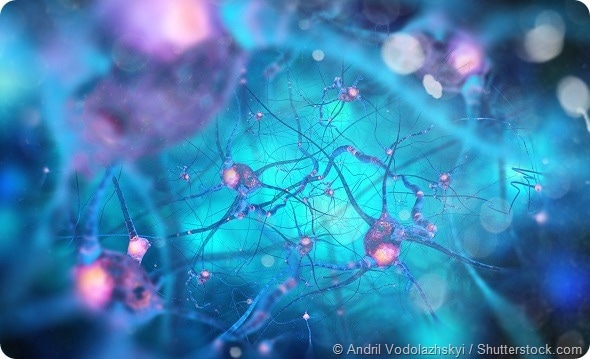Coming back to the question, trigger elements that interfere with appetite probably act on such brain structures. Loss of appetite (anorexia) is frequently associated with a pro-inflammatory state. Although, almost all illnesses can impair appetite temporarily, are the chronic diseases that can make loss of appetite worse.
In severe illnesses anorexia and consequent weight loss is a serious problem associated to cachexia (Kachexia; kako’s bad; “exis condition. Anorexia-Cachexia is a major cause of weight loss and increased mortality and affects more than 5 million people in the United States.
Prof. Conti: It is extremely common. Indeed, I think it is difficult to encounter an individual that did not experience it at one point or another. It occurs primarily during bacterial and viral infections but also in other diseases like cancer.

Can appetite loss affect clinical outcome?
Prof. Conti: Yes, it can if it is prolonged leading to malnutrition and consequently to a weakening of the organism. Appetite loss during sickness is also a component and can possibly lead to cachexia, a wasting syndrome that includes, muscle atrophy, fatigue and weight loss significant loss of appetite in someone who is not actively trying to lose weight. This can be a concern especially in cancer patients and their ability to cope with chemotherapy.
Having said so, it is important to mention that biologists in particular have been debating on whether it is possible that loss of appetite during infection may actually have evolved to help the organism fight the infection. One hypothesis is that reduced nutrient intake could limit minerals or other nutrients that certain microorganism need to thrive. This was never conclusively demonstrated and remains an active topic of discussion.
Prof. Francesconi: Clinical data refer that in anorexia-cachexia syndrome in cancer, the weight loss is a complaint in 15 to 40 percent of patients and indicates poor prognosis. Interleukin induction has been well documented in cancer.
Comparable medical problems as a consequence of appetite loss are described for other severe illnesses such as cachexia associated with AIDS that is highly predictive of death. Interestingly, in older adults the loss of weight highly increases morbidity and mortality, probably due to excess cytokine elaboration.
In the last years the loss of appetite, during severe illness, has started to be considered a serious problem that needs to be taken in serious consideration. Unfortunately, the pharmacological interventions to target appetite stimulation has little efficacy and considerable side effects.
Therefore, nutritional therapy appears to be the logical step to combat inadequate nutrition. However, clinical trial data demonstrate weak benefits. New therapeutic approaches will be desirable to get rid the loss of appetite.
What did your recent research discover about the molecular mechanism that reduces appetite during illness? How does this build on what was previously known?
Prof. Francesconi: When Dr. Conti and I decided to initiate a collaboration on the effects of interleukin 18 (IL-18) on food intake, we already knew that this specific interleukin would be involved, as many other Interleukin, in reducing food intake.
Moreover, Dr. Conti and collaborators already demonstrated that intraventricular (i.v) injection of IL-18 was able to reduce food intake without inducing any other symptoms, as fever, usually associate with blood increase of other interleukin. Therefore, the pathway was already outlined.
IL-18 reduces food intake acting on neurons located in an unknown brain region. I suggested to investigate if IL-18 was acting on neurons located in the Bed Nucleus of the Stria Terminalis (BST) to reduce food intake. Why despite of many brain regions involved in reward, we picked up the BST?
First, this brain region, as a part of the extended amygdala, is deeply involved in chronic stress and anxiety and also in the dependence from drugs of abuse. Second, I studied for many years the plastic changes of neuronal activity of BST neurons during the protracted withdrawal period from drugs of abuse (cocaine and heroin) and alcohol.
I proposed to study the effects of IL-18 on both the excitatory synaptic transmission and intrinsic neuronal excitability recording neurons located in the BST using mice brain slices.
We discovered that IL-18 reduced the frequency of spontaneous excitatory current impinging on a particular type of BST Gabaergic neurons (type III). Statistical analysis of this reduction, revealed that IL-18 was acting at the level of presynaptic glutamatergic terminal, reducing the release of the excitatory neurotransmitter, glutamate on type III GABAergic BST neurons, known to project to the Lateral Hypothalamus (LH).
Our study identified the brain region where IL-18 is acting to reduce food intake and the molecular mechanisms of its action. IL-18, reducing excitatory inputs on GABAergic BST-LH projecting neurons, has an opposite behavioral effect in respects to the one induced by the optogenetic stimulation of GABAergic fibers originating in the BST and projecting to the LH.

Prof. Conti: We discovered that one of the protein that is used by the organism to promote inflammation following infection or tissue damage, the cytokine interleukin 18 (IL-18), reduces appetite by acting directly on neurons that regulates appetite in a specific brain region with a complex Latin name: the Bed Nucleus of the Stria Terminalis.
Although it was previously known that loss of appetite during illness was mediated by molecules that are produced by the immune system, including IL-18, it was not clear by which mechanisms they can influence appetite.
What techniques did you use to elucidate the events regulating appetite?
Prof. Conti: We used a combination of pharmacological and genetic techniques and investigated the electrophysiological and behavioral effects of IL-18.
Prof. Francesconi: We used Molecular, Behavioral and Electrophysiological techniques. Molecular to first identify neuronal localization of IL-18 receptors in the BST. Behavioral to demonstrate the effects of IL-18 injection in the BST on food intake. Electrophysiological to identify which physiological neuronal properties were altered by IL-18.
Does your research point to any potential targets for treating loss of appetite?
Prof. Francesconi: I believe yes. During severe illness the level of IL-18 in the brain increases. IL-18 promotes inflammation without giving serious pathological symptoms except the loss of appetite. Therefore we can endeavor two serial processes: the IL-18 production or the IL-18 binding to its neuronal receptors.
Prof. Conti: Yes, in principle it suggests that reducing or blocking the central action of IL-18 during sickness can ameliorate the loss of appetite during illness.
What are the next steps in your research?
Prof. Francesconi: The first and most challenging step will be to identify the signal transduction activated following the binding of IL-18 to its membrane receptors in the BST.
Since IL-18 acts on presynaptic mechanism of glutamate release, we are interested in identifying which molecular component of the signal transduction pathway activated by IL-18, can be targeted to block the effects of IL-18 on presynaptic vesicle release at level of the BST. This will be an extremely exciting investigation.
It is known that IL-18R induces two major intracellular pathways, one involving the adaptor molecule MyD88 and the other inducing phosphorylation of STAT3. STAT3 tyrosine phosphorylation inhibits presynaptic MAPK/ERK activity with reduction of synapsin I phosphorylation and reduction of glutamate release.
Prof. Conti: There is still a lot to be done. Among the most important things are:
- Determine which molecular and biochemical changes are responsible for the action of IL-18 on the activity of the neurons that regulate appetite. Each can represent a drug target.
- Many Scientists consider feeding a sort of addiction: addiction to food. It will be interesting to investigate whether IL-18 can also regulate addiction to substances of abuse. In fact, the Bed Nucleus of the Stria Terminalis, was recognized for its role in addiction before it was in feeding.
- Investigate the mechanisms of action of other mediator of inflammation that can also contribute to appetite reduction
- It would be important to determine if IL-18 and the BNST have a role in the development of anorexia nervosa and other eating disorders.
Could your research also provide a way to reduce appetite and thereby support weight loss for those with metabolic disorder patients?
Prof. Conti: Yes. Although, as we mentioned, loss of appetite during illness can potentially compromise clinical outcome, this is not always and inevitably the case. Thus, our research shows that investigating the mechanisms by which illness reduce appetite is a novel approach for the development of drugs that can regulate nutrient intake and those metabolic disorders that are caused or influenced by it.
Prof. Francesconi: Yes. IL-18 downstream signals can be target to reduce appetite. We know that deficiency of interleukin-18 (IL-18 KO) in mice leads to hyperphagia, obesity and insulin resistance. Housing the IL-18 KO mice in metabolic cages to measure food intake and energy expenditure, researcher demonstrated that IL-18 KO mice ate significantly more than the Wild type, although the metabolic rate did not differ between the strains.
What do you think the future holds for research into appetites?
Prof. Francesconi: National U.S. survey data suggest the Metabolic Syndrome affects about one-quarter of adults aged 20 to 70 years, with the prevalence approaching 50 percent in the elderly.
These National U.S. survey data together with the increase of number of publications on the central mechanism involved in food intake suggest a brilliant future in the field. Neuroscientists, in collaboration with immunologists—using optogenetic tools—can depict the fine structure of neural circuits involved in food intake in normal subject and also in severe illnesses.
Prof. Conti: Several new discoveries, novel therapeutics and, as it is always the case, new challenges.
Where can readers find more information?
About Prof. Conti and Prof. Francesconi
Bruno Conti, PhD is an Italian-American Scientist and a Professor in the Departments of Chemical Physiology and of Molecular and Cellular Neuroscience at The Scripps Research Institute, La Jolla, California.
Dr Conti trained in Immunology at The New York Medical College and in Neuroscience at Cornell University before moving to The Scripps Research Institute in the year 2000. His area of expertise is neuro-immunology and his research focuses on the effects that mediators of inflammation have in the brain.
His current research is on the role of neuroinflammation in the onset and progression of Parkinson’s disease and on the mechanisms of energy homeostasis, which include the regulation of nutrient intake and of energy expenditure.
Dr Conti cloned rodent IL-18 when at Cornell and later discovered its anorexigenic effects. Dr Conti is best known for having demonstrated that even small but prolong reduction of core body temperature prolongs lifespan.
Walter Francesconi, PhD is an Italian-American Scientist and an Associate Professor in the Departments of Chemical Physiology at The Scripps Research Institute, La Jolla, California.
Dr Francesconi trained in neuroscience at the Institute of Human Physiology at the University of Pisa, Pisa, Italy and at the Max-Planck Institute for Hirnforshung in Frankfurt a.M, Germany before moving to The Scripps Research Institute in the year 2001.
His area of expertise is neuro-physiology and his research focuses on the effects that substances of abuse have on synaptic transmission, neuronal excitability and plasticity studied in brain slice preparation.
His current research is to study the mechanisms of action of the cytokines IL-18 and IL-13, on synaptic transmission and neuronal excitability in the Bed Nucleus of the Stria Terminalis and in the Ventral Tegmental Area, respectively. Dr Francesconi is also involved in studying the neuronal plastic changes underlying Post Traumatic Stress Disorder (PTSD) and Fragile X syndrome.